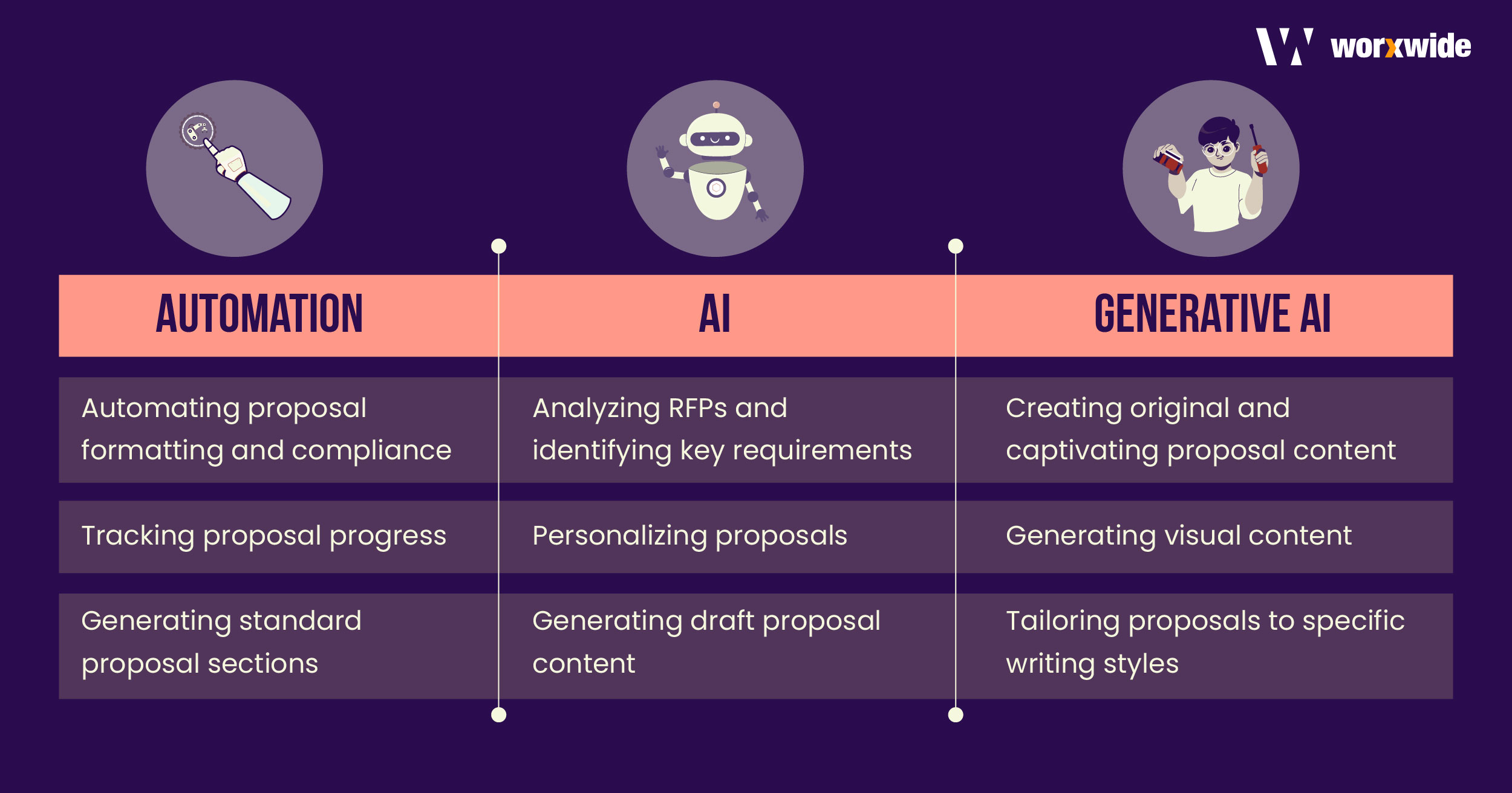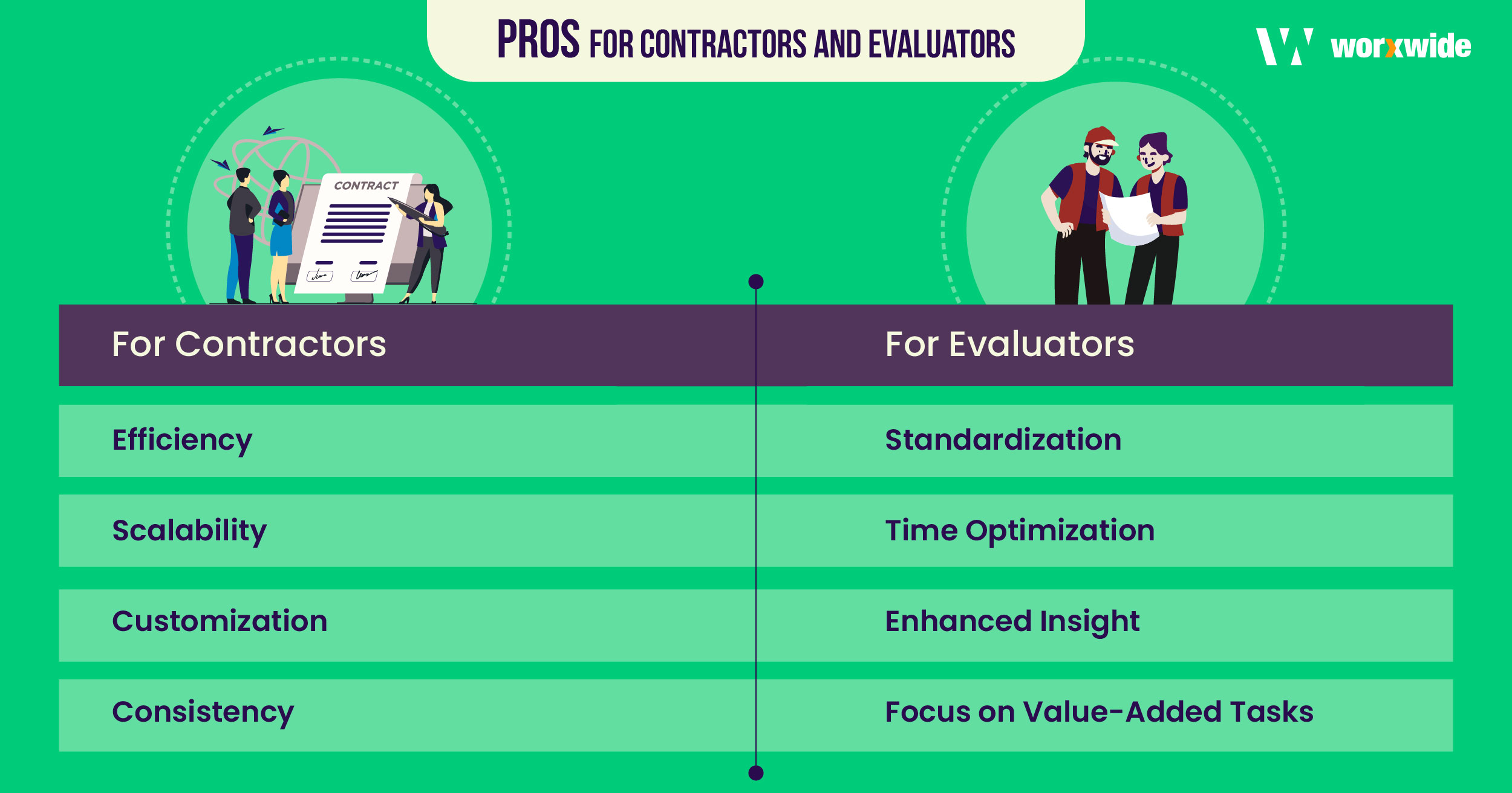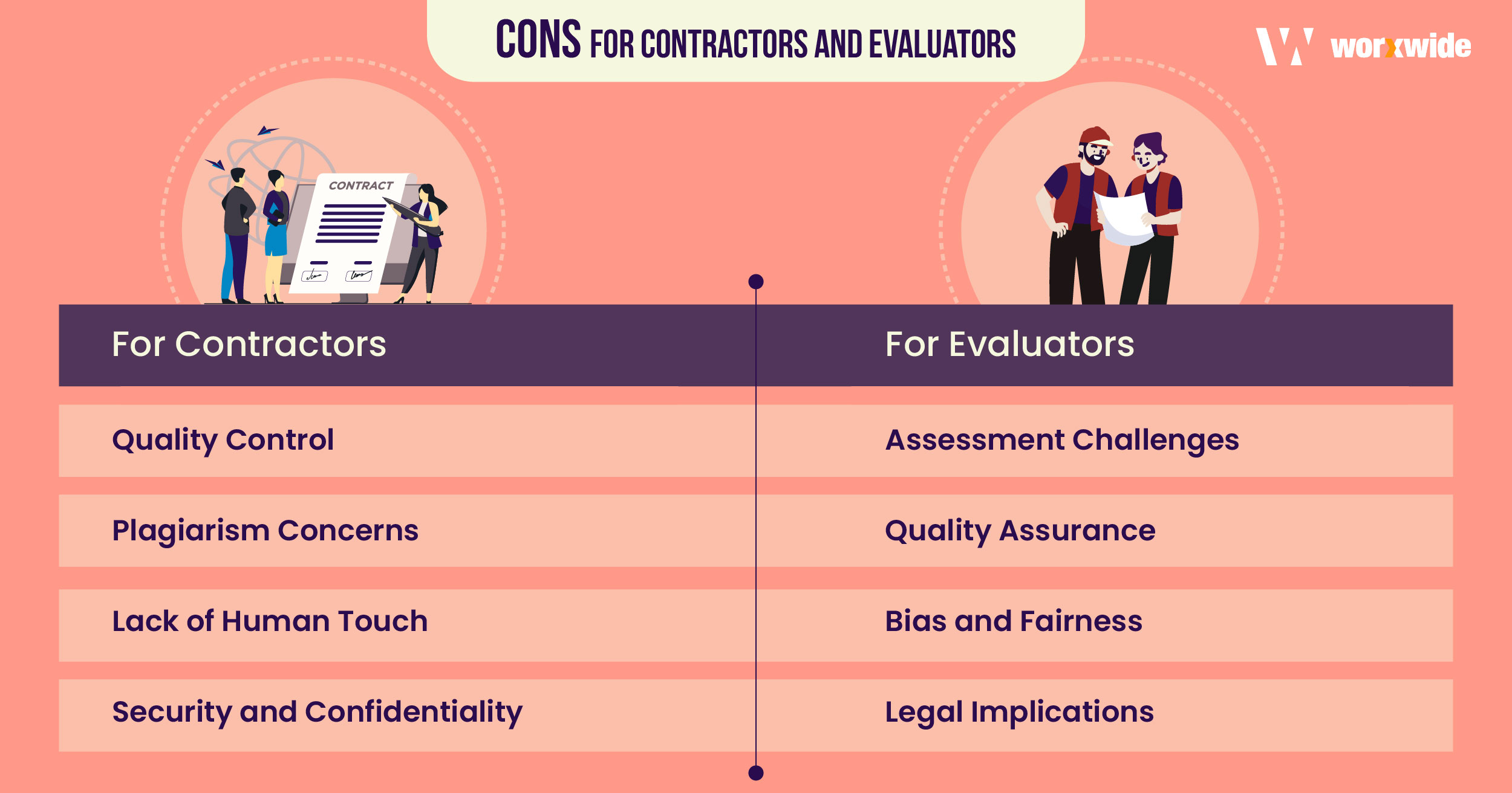Navigating the Intersections: Exploring AI, Automation, and Generative AI in the Modern Business Landscape
In today’s fast-paced business world, where efficiency and innovation are key, there is a growing need for technology to step up. To do that we need to first understand all the different technologies in the market. AI is a new buzzword that is flooding all workspaces irrespective of industry.

However, few of us are aware of other technologies that are interrelated to AI Automation and more importantly Gen AI, and how we can utilize the unique abilities of these modern tools in diverse contexts.

According to the survey by Deloitte, 70% of CPOs (Chief Procurement Officers) indicate that procurement-related risk/supply chain disruption has increased in the past 12 months.

To mitigate this, in recent years, the workforce across various industries, from marketers to product developers, have come to recognize the transformative potential of generative AI in boosting their productivity. Generative AI can help public sector procurement by simplifying a request for proposals (RFP) responses. An RFP response is a formal document submitted by a proposed approach to fulfilling the organization’s needs as outlined in the RFP.

Creating an RFP can be a time-consuming and challenging process, but generative AI can streamline the process by automating content generation through templates and data analysis, utilizing a natural language vendor or contractor in response to a Request for Proposal (RFP) issued by an organization, such as a government agency or a business. The RFP response outlines how the vendor plans to meet the requirements outlined in the RFP, including details about their proposed solution, pricing, timeline, and any other relevant information requested in the RFP. It serves as the vendor’s opportunity to present their qualifications, expertise processing to understand the RFP’s context, personalizing responses to fit the organization’s requirements, and ensuring quality assurance checks for grammar, formatting, and compliance.
For an RFP response to be precisely addressed we require contractors and evaluators to ensure that the procurement of goods or services is conducted effectively and fairly, after the intervention of AI, it has been highly utilized but it also comes with pros and cons for both contractors and evaluators.
Pros for Contractors and Evaluators:

For Contractors
- Efficiency: Generative AI can streamline the process of drafting RFP responses by automating the generation of content. This saves contractors time and resources, allowing them to focus on other aspects of the proposal.
- Scalability: It enables contractors to scale their RFP response efforts to handle multiple requests simultaneously. This scalability allows them to pursue a broader range of opportunities and increases their chances of securing contracts.
- Customization: AI can generate tailored responses based on the specific requirements outlined in the RFP. Contractors can customize the generated content to highlight their unique strengths, capabilities, and solutions, thus improving the relevance and persuasiveness of their proposals.
- Consistency: AI ensures consistency in language, tone, and formatting across the entire proposal, enhancing professionalism and coherence. This consistency can contribute to a positive impression of the contractor’s reliability and attention to detail.
For Evaluators:
- Standardization: AI-generated responses often adhere closely to predefined templates and guidelines, making it easier for evaluators to compare proposals objectively. Standardization reduces ambiguity and subjectivity in the evaluation process, leading to more consistent and reliable assessments.
- Time Optimization: AI can expedite the evaluation process by automatically analyzing and summarizing key information from RFP responses. Evaluators can quickly identify relevant details, strengths, weaknesses, and discrepancies in the proposals, thus saving time and effort.
- Enhanced Insight: AI tools can provide evaluators with data-driven insights and analytics to support their decision-making process. By analyzing patterns and trends in RFP responses, evaluators can gain valuable insights into market trends, contractor performance, and best practices.
- Focus on Value-Added Tasks: By automating repetitive tasks, AI frees up evaluators to focus on higher-value tasks, such as strategic analysis, stakeholder engagement, and decision-making. This allows evaluators to allocate their time and expertise more effectively, improving the overall quality of the evaluation process.
Cons for Contractors and Evaluators:

For Contractors:
- Quality Control: Generative AI may produce responses that are grammatically correct but lack coherence or relevance to the RFP requirements. It puts them under an extra responsibility to check if the generated content is of high quality and aligns closely with the proposal’s objectives.
- Plagiarism Concerns: There is a risk that AI-generated content might inadvertently include plagiarized material from publicly available sources or other RFP responses. Which could lead to legal issues or damage to the contractor’s reputation if discovered.
- Lack of Human Touch: Contractors might become overly reliant on AI tools, neglecting human oversight and input. This could result in generic or cookie-cutter responses that fail to highlight the contractor’s unique strengths and capabilities.
- Security and Confidentiality: Contractors need to consider the security implications of using AI tools, especially if sensitive or proprietary information is involved in the RFP response. There is a risk of data breaches or leaks if proper precautions are not taken.
For Evaluators:
- Assessment Challenges: Evaluators may struggle to differentiate between AI-generated and human-generated content, especially if the AI-generated responses are of high quality. This could lead to inaccurate assessments and potentially favoring bids based on superficial criteria.
- Quality Assurance: Evaluators need to implement high-quality assurance measures to verify the authenticity and integrity of RFP responses. This might involve cross-referencing information provided in the proposals with external sources or conducting additional interviews or inquiries.
- Bias and Fairness: There is a risk that AI-generated responses could create biases, potentially disadvantaging certain contractors or favoring established players in the industry. Evaluators must remain vigilant and impartial in their assessment process.
- Legal Implications: If evaluators unknowingly award contracts based on AI-generated content that contains plagiarized material or false claims, it could lead to legal disputes and reputational damage for the evaluating organization.
Will AI ever replace actual human writing & emotions?

While AI has advanced in natural language processing, mimicking human writing to a remarkable extent, its ability to replace human writing and emotions in RFP response writing remains limited. Despite generating coherent and grammatically correct content, AI lacks the creativity, intuition, and emotional depth inherent in human writing, crucial for crafting persuasive and engaging responses. Human writers excel in contextual understanding, critical thinking, and problem-solving, tailoring responses effectively to meet client needs and differentiate proposals. Moreover, human-written content fosters authenticity and trust, which is vital in building credibility with clients. Ethical considerations surrounding AI-generated content further highlight the indispensable role of human input in ensuring transparency, fairness, and accountability. While Generative AI excels at expediting processes and enhancing quality, it lacks the innate creativity, intuition, and nuanced understanding that humans possess. Human intervention ensures that AI-generated content aligns with brand values, meets specific user needs, and upholds ethical standards. Thus, while generative AI offers invaluable support, it is human input that ensures its effectiveness in achieving desired outcomes.
How can Worxwide help you?
Worxwide Consulting, a leading bid and growth consulting firm that helps companies with tailored proposal writing, proposal management, and automating the proposal creation journey. We have a team of seasoned business proposal writers and bid experts who are well-acquainted with the govt. and commercial markets helping small to mid-size businesses win more.
If you are looking to automate proposal management or looking to build a proposals team, give us a shout at Contact us!
tx, USA

London, UK

India


